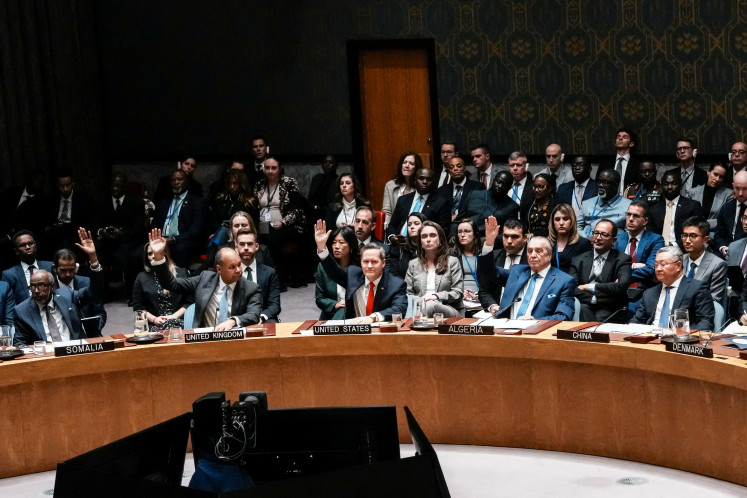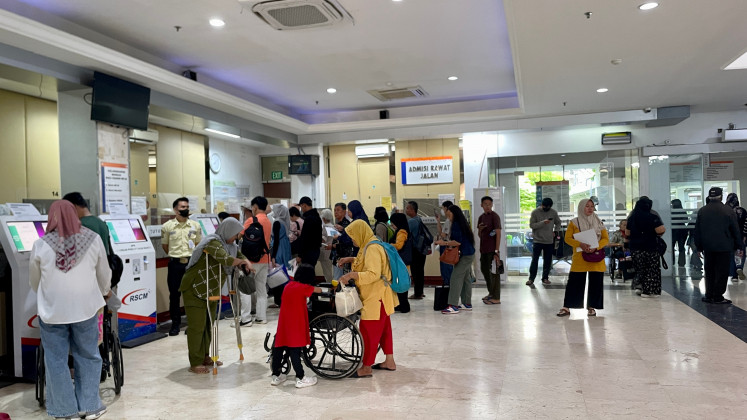Popular Reads
Top Results
Can't find what you're looking for?
View all search resultsPopular Reads
Top Results
Can't find what you're looking for?
View all search resultsWomen encouraged to speak up on religion
Mutual encouragement against being intimidated to speak up was part of Sunday's discussion among scholars and activists at a global meeting in Malaysia on women's rights
Change text size
Gift Premium Articles
to Anyone
M
utual encouragement against being intimidated to speak up was part of Sunday's discussion among scholars and activists at a global meeting in Malaysia on women's rights.
"As citizens, we are all affected *either by policies or religious rulings*," said Madhu Mehra from India.
So whether believers or not, whether learned in religion or not, said the lawyer, "we all have a right to speak up", including on religious issues.
Since the start last Friday of the ongoing Musawah, the gathering on the global movement for equality and justice in the Muslim family, women had raised concerns of being dismissed or intimidated for speaking up, particularly on issues that went against positions of religious authority.
Accusations of being kafir, or a nonbeliever is a common allegation, they said, apart from physical intimidation and assault.
Francis Lessing of the US-based Catholics for Free Choice shared the controversial targets of her organization: "to break down the political power" of the Catholic church, and "to claim the identity of religion".
"There's nothing that makes authorities angrier than claiming the right of a layman to define what it is to be a Catholic," she said from a panel of speakers representing different faiths.
Engaging in public forums as much as possible, "even if it makes people angry", she said, was one strategy in making their voices heard.
Earlier, leading US Islamic theologian Amina Wadud said it was "really important to help people working at the community level" not to be intimidated by those giving religious sermons and the like.
Citing domestic violence, and the verse in the Koran often used to justify violence against wives, among others, she referred to the practice of slavery that existed in the Koran, but which was not accepted nowadays.
"At some point in history, we realized that all humans are equal," she said.
From 25 years of research, she said she found "active participation" of jurists interpreting Koranic verses, including those seeking to ensure that domestic violence should not occur despite the contentious clause in the An Nissa verse.
In cases of violence against women, she said, it was also crucial to bring in women as expert witnesses on domestic violence.
In matters of finance, medical ethics and bioethics and the environment, she said, religious authorities often looked for expert witnesses, but not regarding violence against women.
On Friday, host Zainah Anwar, from Sisters In Islam, said women were dismissed when talking about religious issues "because we don't have a beard", or because they did not wear a veil, or did not have a relevant degree; or were veiled and learned, but dismissed nevertheless.
"Going in deeper" in studying respective religions, Thailand's first female Buddhist nun suggested, strengthens women in speaking up on their faith.
Chatsumarn Kabil Singh said Buddhists in general never knew that in history, Buddha (Siddharta Gautama) once ordained a woman, a practice not recognized until today in Buddhist-dominated Thailand. She was ordained in Sri Lanka.
















